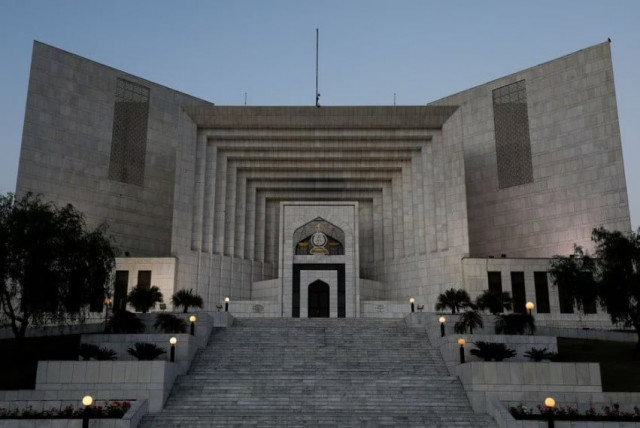Majority unable to recognise ‘trichotomy of powers’
Dissenting judge notes primary question relates to parliamentary democracy

Justice Mansoor Ali Shah -- the only judge on a three-member bench who disagreed with the verdict given by the other two in the case related to the amendments to the country’s accountability law – on Friday observed that the majority decision had fallen short to recognise the constitutional command that ‘the State shall exercise its power and authority through the chosen representatives of the people' and to recognise the principle of trichotomy of powers that was the foundation of parliamentary democracy.
In his dissenting note, Justice Shah explained that he had read the majority verdict last night but could not agree to it as it as the primary question in the case was not about the alleged lopsided amendments introduced to the National Accountability Bureau (NAB) law by parliament, but about the supremacy of the house of the chosen representatives of about 240 million people of Pakistan.
“It is about the constitutional importance of parliamentary democracy and separation of powers between three organs of the State,” he added.
Also read SC delivers a stunning blow to politicians
The judge observed that the question was about the limits of the jurisdiction of the court comprising unelected judges, deciding the purpose and policy of an enactment passed by parliament, without any clear violation beyond reasonable doubt of any of the fundamental rights guaranteed under the Constitution.
“The majority has fallen prey to the unconstitutional objective of a parliamentarian, of transferring a political debate on the purpose and policy of an enactment from the houses of parliament to the courthouse of the Supreme Court,” the judge continued.
“Without setting out a clear and objective test for determining how the claimed right to have [the] accountability of the parliamentarians is an integral part of any of the fundamental rights guaranteed under the Constitution, the majority judgment through a long winding conjectural path of far-fetched ‘in turn’ effects has tried hard to ‘ultimately’ reach an apprehended violation of the fundamental rights,” the dissenting note read.
Justice Shah observed that the majority judgment had also fallen short to appreciate what parliament had done and what it could undo.
“The legislative power of parliament is never exhausted,” he added.
The judge noted that if parliament could enact the NAB law, it could also repeal the entire legislation or amend it.
“For these and further reasons to be recorded in my detailed opinion later, with great respect, I disagree with my learned brothers and dismiss this petition,” Justice Shah concluded.












1724319076-0/Untitled-design-(5)1724319076-0-208x130.webp)






COMMENTS
Comments are moderated and generally will be posted if they are on-topic and not abusive.
For more information, please see our Comments FAQ